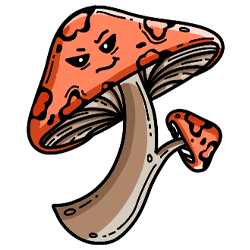pjson.py
ofrak.service.serialization.pjson
PJSONSerializationService (SerializationServiceInterface)
Service handling the serialization and deserialization of various types into a JSON-compatible Python type named PJSON (for "proto-JSON"). The idea is that this is a Python type, making its handling easier, but which has a straightforward mapping to real JSON via json.dump() or json.load().
In this model, JSON serialization happens in two stages: object to PJSON, then PJSON to JSON (string). Deserialization works the same way: JSON (string) to PJSON, then PJSON to object.
Note that the PJSON representation of an object might be the object itself, for example to_pjson(1, int) == 1.
__init__(self, serializers)
special
This class should be instantiated via the dependency injector. This assumes that the serializers
module has been discovered.
Source code in ofrak/service/serialization/pjson.py
def __init__(self, serializers: List[SerializerInterface]):
"""
This class should be instantiated via the dependency injector. This assumes that the `serializers`
module has been discovered.
"""
self._serializers = serializers
for serializer in self._serializers:
# This class requires the custom serializers, and the custom serializers require this class.
# Hacky workaround for this circular dependency.
setattr(serializer, "_service", self)
# Used to cache results of serializer discovery
self._cached_type_to_serializer_mapping: Dict[Any, SerializerInterface] = {}
to_pjson(self, obj, type_hint)
Generic function to recursively convert obj into PJSON.
The following type hints are supported:
- Tuple, List, Sequence, Iterable
- Dict
- Set
- Union, and its special case Optional (NOTE: Union should only be used with mutually exclusive types, and types with different PJSON representations. For example, serializing bytes as Union[str, bytes] will work, but then since both str and bytes are serialized as str, deserialization won't be able to figure out whether the PJSON str object should be decoded as str or bytes. In practice, all types within the Union are tried in order, and the first that works is selected. So serializing then deserializing bytes as Union[str, bytes] will result in a str, not the original bytes. This should be considered an implementation detail, though: relying on the order of the types within the Union isn't encouraged.)
- int, float, bool, str
- type(None)
- bytes
- enum.Enum, or any type hint corresponding to a subclass of enum.Enum
- Type[X], type or another metaclass, when
objis a class and should be serialized as a reference to itself - dataclass instances
- other class instances. This will work if the class has type annotations which correspond to the arguments in its init() method, and the attributes don't change meaningfully as they go through init() (i.e. the class isn't too different from a dataclass).
- Any, only if the object is already of PJSONType. Otherwise TypeError is raised. (prefer specific types whenever possible)
If any type is found during recursion that isn't in this list, a TypeError exception is raised.
Source code in ofrak/service/serialization/pjson.py
def to_pjson(self, obj: Any, type_hint: Any) -> PJSONType:
"""
Generic function to recursively convert `obj` into PJSON.
The following type hints are supported:
- Tuple, List, Sequence, Iterable
- Dict
- Set
- Union, and its special case Optional
(NOTE: Union should only be used with mutually exclusive types, and types with different PJSON representations.
For example, serializing bytes as Union[str, bytes] will work, but then since both str and bytes are serialized as
str, deserialization won't be able to figure out whether the PJSON str object should be decoded as str or bytes.
In practice, all types within the Union are tried in order, and the first that works is selected. So serializing
then deserializing bytes as Union[str, bytes] will result in a str, not the original bytes. This should be
considered an implementation detail, though: relying on the order of the types within the Union isn't encouraged.)
- int, float, bool, str
- type(None)
- bytes
- enum.Enum, or any type hint corresponding to a subclass of enum.Enum
- Type[X], type or another metaclass, when `obj` is a class and should be serialized as a reference to itself
- dataclass instances
- other class instances. This will work if the class has type annotations which correspond to the arguments in its
__init__() method, and the attributes don't change meaningfully as they go through __init__() (i.e. the class
isn't too different from a dataclass).
- Any, only if the object is already of PJSONType. Otherwise TypeError is raised. (prefer specific types whenever
possible)
If any type is found during recursion that isn't in this list, a TypeError exception is raised.
"""
serializer = self._get_serializer(obj, type_hint)
return serializer.obj_to_pjson(obj, type_hint)
from_pjson(self, pjson_obj, type_hint)
Opposite of to_pjson.
Source code in ofrak/service/serialization/pjson.py
def from_pjson(self, pjson_obj: PJSONType, type_hint: Any) -> Any:
"""Opposite of `to_pjson`."""
serializer = self._get_serializer(pjson_obj, type_hint)
return serializer.pjson_to_obj(pjson_obj, type_hint)
_get_serializer(self, obj, type_hint)
private
Return the first serializer/deserializer pair found for type_hint.
Source code in ofrak/service/serialization/pjson.py
def _get_serializer(self, obj: Any, type_hint: Any) -> SerializerInterface:
"""Return the first serializer/deserializer pair found for `type_hint`."""
# Has this type already been seen?
try:
return self._cached_type_to_serializer_mapping[type_hint]
except KeyError:
pass
# First pass: `targets` as explicit types have priority over predicates
for serializer in self._serializers:
for target in serializer.targets:
if not isfunction(target) and target == type_hint:
self._cached_type_to_serializer_mapping[type_hint] = serializer
return serializer
# Second pass: if the type hint didn't correspond to any explicit type, try predicates
for serializer in self._serializers:
for target in serializer.targets:
if isfunction(target) and target(type_hint) is True:
self._cached_type_to_serializer_mapping[type_hint] = serializer
return serializer
raise TypeError(f"Unrecognized type hint {type_hint} for {obj}")
dumps(self, pjson_obj)
Wrapper around the dumping method of the JSON library used.
Source code in ofrak/service/serialization/pjson.py
def dumps(self, pjson_obj: PJSONType) -> str:
"""Wrapper around the dumping method of the JSON library used."""
return orjson.dumps(pjson_obj).decode("utf-8")
loads(self, json_obj)
Wrapper around the loading method of the JSON library used.
Source code in ofrak/service/serialization/pjson.py
def loads(self, json_obj: str) -> PJSONType:
"""Wrapper around the loading method of the JSON library used."""
return orjson.loads(bytes(json_obj, "utf-8"))
